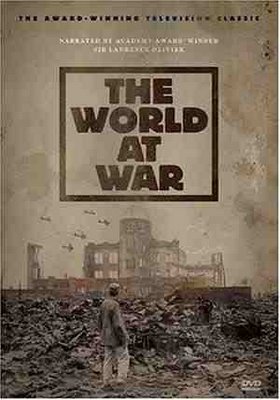 |
| (Right after the 1986 disaster. I wonder if the helicopter pilot knew how dangerous this proximity was.) |
But I began with the Soviet Union. There's a semi-skeevy website I've followed off and on for several years called English Russia, and they've given a fair bit of coverage to the abandoned site of the power plant and the nearby ghost towns of Pripyat and Chernobyl, which were evacuated almost immediately after the disaster and are now inside an "exclusion zone" where people are prohibited. From the starting point of being a sucker for the old and abandoned, I find the pictures of what has become of these towns really magnetic; and an exploration of the ghost world of present-day Chernobyl leads one inexorably back to the events that made it so.
(Even looking around the satellite photos from Google is eerie. A fully-functional city abandoned abruptly and now being reclaimed by nature.)
 |
| (Part of an amusement park at Pripyat. It had not yet opened when the disaster struck.) |
An examination of those events immerses us in a dense, technical world that is utterly foreign and incredibly menacing. And really fascinating in a ghastly sort of way. The accident in Chernobyl occurred in the early morning hours of April 26, 1986 when engineers were attempting to run a kind of stress test of equipment on Chernobyl's Reactor #4. The test was not properly conducted, nor were all the numerous prerequisite safety procedures followed, and the test went wrong--almost unimaginably wrong. The detailed descriptions of the accident are mesmerizing, and are covered extensively at the Wikipedia page linked above. I know little about nuclear power, but I have to note in passing the similarity between this disaster and many airline accidents in that there was a whole series of mistakes and shortcuts and breaches of protocol that led to this very unlikely outcome. An airplane accident is almost never caused by a single thing, but rather by a series of breaks in the chain of safety. And so it was here.
That is itself something to contemplate--all the near-misses that might have averted such a monumental catastrophe. But it's the consequences that stay with one, the vastness and permanence of the aftermath and the really shocking toxicity that results from things going bad in the realm of nuclear fission. After a series of explosions and fires that pretty much destroyed the structure around reactor #4, the fuel in the reactor core overheated, causing a meltdown: the entire reactor core melted into an oozing, lava-like blob of almost unimaginable malignancy, eating through the concrete and steel floor of the reactor and oozing into the containment structure beneath (Jebus help us if it were to eat through THAT floor and enter the groundwater--a situation which Fukushima might be facing).
And that's where it now sits--a many-ton blob of pure, agonizing, flesh-melting death nicknamed "the elephant's foot" because of its size and color--though of course no person has laid eyes on it. It is so toxic that it can only be viewed with robotic cameras. The elephant's foot is emitting about 10,000 roentgen per hour--500 or so is a lethal dose for a human; so to be in its presence would cause certain and rapid death (as I understand it, people are only allowed to be in the huge reactor building itself--still quite a distance from the elephant's foot proper--for a maximum of two minutes. This at least partly explains why there have been somewhere between 600,000 and a million workers needed to stabilize the situation at Chernobyl; nobody can give more than a few minutes of their time before their eligibility expires).
The elephant's foot is of course the big central source of radiation at the site, but the explosions from April of 1986 spread nuclear fallout throughout a vast area covering parts of several countries. The intensity of the radioactivity gradually recedes with distance from the accident site. The worst of it--the exclusion zone--is an irregularly-shaped, cordoned-off area extending some 19 miles in every direction from the power plant within which human habitation is not allowed. People are allowed to visit the site only with permission and under supervision. Many places inside the zone are still dangerously radioactive, and they will remain so for hundreds or thousands of years to come. One of the websites I read said the reactor site itself would not be habitable for humans (without some as-yet nonexistent intervention) for some 20,000 years. Looking at the satellite photos, it's a mental challenge to envision a single point of such virulent toxicity that people are not allowed to spend any substantial amount of time within 20 miles of it. 20 miles! But concentrations of contaminated particles of much, much less toxicity than the elephant's foot are still enough to render large areas uninhabitable (as the map below shows).
 |
| (The various exclusion zones around Chernobyl.) |
What to do with this? The destroyed reactor was hastily (and with great difficulty) encased in a metal structure nicknamed "the sarcophagus" designed to basically contain the spread of highly radioactive dust and debris from wind or water or further structural collapse. But because no one could be near the reactor for very long, the structure had to be hastily made and is neither structurally sound nor stable. Though it has served its very temporary purpose, now the sarcophagus itself is in jeopardy and plans are afoot for a more permanent encasement (the uncontrolled collapse of the building would, it is feared, cause another release of toxic matter into the surrounding area). But even then we're talking only about, say, hundred-year solutions. 20,000 years is way beyond us. You might encase the elephant's foot in concrete, if you could do it, and that would buy us what? At best 1000 years, maybe? 19,000 to go.
I daresay for most of us this is unfathomable territory, like contemplating astronomical numbers. There really is no other disaster like this in human history, one that essentially renders a section of the planet inhospitable for many times the length of recorded history. Death is death, true, but no fire, no plague, no oil spill, no chemical spill, not even the explosion of an atomic bomb; nothing in our history has this kind of deadly staying power, a fact which adds a tremendous burden of consequence to anything having to do with atomic power.
The invisible and mysterious nature of radiation only adds to the sense of awe and dread. There is a field some miles from the site of the power plant (though still inside the exclusion zone) called Rossokha where some of the vehicles and equipment used to combat the disaster are quarantined (zoom into this location here): some 1,300 cars and trucks and loaders, even large military helicopters (many other vehicles are scattered elsewhere or buried, as are the hundreds of thousands of used radiation suits and facemasks and other human equipment). It's hard for me to grasp a steel truck being contaminated--a lethal, toxic contamination!--such that a good wash job would not take care of it. I've read elsewhere that even the quarantine of these vehicles was deemed inadequate and since the satellite photos were taken many of the vehicles have been moved and buried for safety. Again, this is a toxicity that I have trouble wrapping my head around.
The subject of nuclear power is another one of those topics where I suspect many people already have well-informed and firmly-held opinions, but I find myself unable to commit too firmly to either advocacy or condemnation. The monumental nature of the evil released in the Chernobyl accident raises very legitimate questions about whether any benefit of nuclear power can possibly justify the risk of such a disaster; and it raises questions about how well we understand these risks and how informed we are as a people about the risks for which we are on the hook.
I find myself thinking about the environmental fallout of every alternative form of energy, and I wonder if it isn't largely a question of how concentrated the penalties are. The consequences of our use of fossil fuel are concentrated in some places in the form of respiratory disease and acid rain and oil spills, but mostly we're feeling the effects globally as the entire planet warms, putting whole ecosystems in jeopardy and perhaps, down the road, life itself. I remind myself that while the spent nuclear fuel is itself a nasty material, the problems of Chernobyl are the result of otherwise-controlled activities going wrong. Nuclear power when everything goes as planned is clean (though its leavings are a problem to be coped with). But we must grapple with an astounding malignancy if things get out of hand--and we must evidently do a better job of designing our circumstances to prevent things from getting out of hand, even in extremis.
Fukushima puts all this front and center. While Chernobyl is a relatively remote place (and the power plant was very wisely put there intentionally instead of near Kiev, which is the primary user of the plant's output) Japan is a densely-populated island nation, and a country prone to earthquakes and tsunamis. They appear to be grappling with a triple-meltdown, and if the same kind of monstrously-toxic materials as we find in Chernobyl--strike that, three times the material--should make its way into the environment, the consequences may be such as to make the tale of Chernobyl seem like a nursery rhyme.
Stay tuned.
***
For those interested, one can get quickly sucked into an almost endless chain of links on Wikipedia about this and related matters. Though I've long been interested in science and in a layman's version of physics, I grasp that physics without the maths is pretty much not physics. And that applies here, I'm sure. But the physics and chemistry involved with controlled nuclear fission seem like very heady and amazing stuff. For all those who believe that science is just religion by another name, it's worth noting that nuclear physics is a branch of pure science which is proven daily in very practical ways. There's no bullshitting your way through nuclear science, and the fact that we understand it and can build and (mostly) control it is a magnificent testament to human capacity and ingenuity. This is not intended as an argument in favor of nuclear power; I only mean to say that reading the descriptions of what it is and how it works and what we had to do to figure it out places scientists in a pretty rarified stratum. We need only to step to the wrong side of the line--which unfortunately we've done many times, and as a routine part of learning how the world works--to have demonstrated to us that "truth" is not a fuzzy concept. In the world of nuclear physics, things are right and wrong and the difference between them may be life and death.








